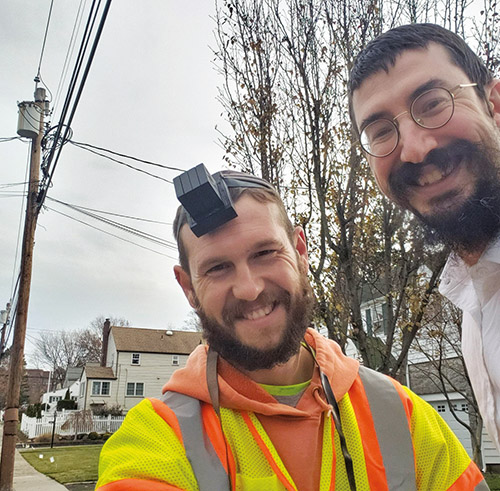
A few days ago, a Chabad rabbi came back from the grave! It happened to a good friend of mine, Rabbi Nachum Goldshmid, from Netanya, Israel. While attending a funeral, he fell into the open grave! Turned out that standing so close was a grave mistake. But thank God — other than a minor injury — he is not gravely ill (can someone please stop me?).
When I called him to wish him well, we noticed how this incident happened right before the parsha of Vayechi, the parsha that teaches us the importance of a Jewish burial. It begins with the scene of Jacob on his deathbed, summoning his son, Joseph. Jacob had an important matter to discuss: his burial arrangement.
He pleaded with Joseph not to allow his body to remain in Egypt and, instead, asked him to bring it to the land of Israel. “I want to be interred there, just like my parents,” he said. Joseph agreed, but more was needed. He was asked to take an oath, pledging that he would spare no effort to ensure his father received the burial he desired.
The parsha ends with a conversation between Joseph and his brothers. This time, it was Joseph who was about to die, and he, too, was concerned about his burial arrangement. Like this issue was dear to his father, so too, it was also important to him. And for hundreds of years, Jewish parents have passed on this beautiful tradition of Jewish burial. I wish more people knew about it.
Sadly, today, many people chose to get cremated or to cremate their loved ones. Having discussed this topic with many who are considering cremation, I know that often it is only because of a lack of awareness of the beauty and importance of this after-life ritual. If you are considering cremation for yourself or your loved ones, I beg you to research this subject. Learn about the history, meaning and importance of Jewish burial.
Having had the honor of volunteering for chevra kadisha (literally “the holy group,” that is, “the group that prepares the deceased for burial”) for years, I’ve seen firsthand the respect and dignity surrounding this Jewish rite.
I remember the first time I participated in a “tahara,” the traditional preparation. I was nervous and wasn’t sure what to expect. But when I entered the preparation room, I sensed… holiness.
Holiness was the last thing I’d expected to feel. After all, I was about to touch and handle a dead body. I was about to come face-to-face with death, the ultimate ending. Where did the feeling of holiness come from? The answer is two-fold.
First, Judaism pays tremendous respect to the body, because of all the mitzvot it did during its lifetime. It just makes sense. Our bodies are the tools we use to positively impact the world around us; this makes them precious and deserving of utmost respect.
Second, death is not the end. While the body finishes its part, the soul continues its journey — returning to its divine source in heaven. And while doing so, it’s still connected to its former “partner,” the body. Letting the body rest in the grave and allowing nature to take its course is also a source of comfort to the soul.
May all of us enjoy a long, healthy life!
Rabbi Mendy Kaminker is the rabbi at Chabad of Hackensack. He welcomes your questions and comments on this topic (or any other topic!) at [email protected]










